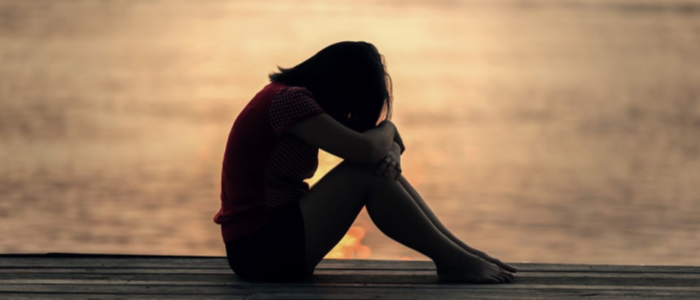
You’re not alone.
Have you had an abortion? Do you feel guilt or regret? Are you an abortion clinic worker or a man and assisted in an abortion?
We can help.
An overwhelming number of studies now show women and men who have had or been involved in an abortion can suffer severe or moderate post-abortion trauma.
If you or someone you love is suffering from the grief that follows an abortion, there is healing. Sometimes the grief begins right away. Sometimes the grief can be buried deep within our hearts for decades until the pain comes to light.
Wherever you are in your journey of healing, you’re not alone.
If you would like to take the first step in healing from the pain that abortion has caused, we’re here for you. There are many healing retreats and ministries available that are confidential, loving, and judgement free. Trained counselors can help you heal the suffering in your heart.
Abortion Hurts
The most comprehensive and largest study of the mental health risks associated with abortion was published on September 1, 2011, in the prestigious British Journal of Psychiatry. The study was a meta-analysis that examined 22 other studies that had been published between 1995 and 2009. The study involved 877,181 women – 163,831 of whom had abortions.
Here’s what the study found:
- Women who have had an abortion have an 81% higher risk of subsequent mental health problems compared to women who have not had an abortion.
- Women who aborted have a 138% higher risk of mental health problems compared to women who have given birth.
- Women who aborted have a 55% higher risk of mental health problems compared to women with an “unplanned” pregnancy who gave birth.
- Women with a history of abortion have higher rates of anxiety (34% higher), depression (37%), alcohol use/misuse (110%), marijuana use (230%), and suicidal behavior (155%) compared to those who have not had abortions.
At the same time, abortion does not only hurt women. It hurts men too. (Please see our brochure, Abortion Hurts Men, for more information). It can also impact family members, friends, and clinic workers associated with the abortion. The pain and hurt from abortion can be widespread.
Healing Ministries
There are several fantastic ministries and organizations that exist to offer men and women suffering in the aftermath of abortion the hope and healing they need. Here are a few:
Project Rachel
888-456-HOPE (4673)
Deeper Still
865-524-3313
Silent No More
888-735-3448
Restore After Abortion
630-599-0043
And Then There Were None (ATTWN)
*This is a healing ministry for abortion clinic workers.
888-570-5501
What We’ve Learned
For over 50 years, Illinois Right to Life has offered counseling and support for women and men who have been impacted by abortion. Our experiences counseling these individuals reflect those found in the studies mentioned in this brochure.
We’ve dried the tears of women who poured out their hearts to us telling us about the pain of their abortions. We’ve comforted men who’ve come to us, helpless and hurting in the face of the abortion of their unborn children.
The pain and agony we have witnessed firsthand, along with the firm scientific studies, have brought us to the point where we would never recommend abortion as healthy or good for any woman or couple.
Nevertheless, we welcome with open arms those who have had abortions or facilitated abortions. We offer them nothing but love, comfort, and hope.
If you are in need of assistance and would like to be connected to a healing ministry, please call Illinois Right to Life at 312-422-9300 or email us at [email protected]. All communication will be kept confidential.
Sources
Coleman, PK, “Abortion and Mental Health: Quantitative Synthesis and Analysis of Research Published 1995-2009,” BJP 2011; 199:180-186).
